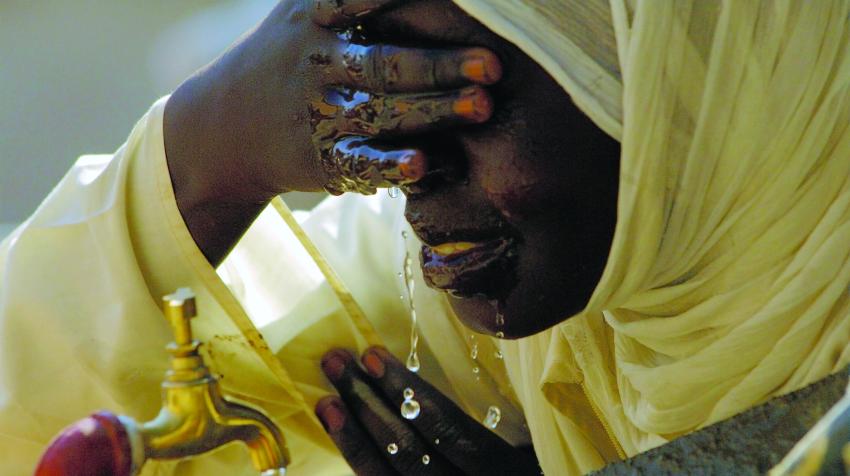
Challenges to Biosecurity from Advances in the Life Sciences
This article summarizes the results of a qualitative risk assessment project on the biosecurity implications of developments in synthetic biology and nanobiotechnology carried out by the United Nations Interregional Crime and Justice Research Institute (UNICRI).

New Security Risks and Challenges for Consuls
The rapidly changing global environment affects the nature of the work done by consuls and the conditions under which they work. Among the significant challenges that consuls face globally is the emergence of new security risks that threaten peace, security and development.

Cyberconflicts and National Security
Whenever national cybersecurity policy is discussed, the same stories come up again and again. Whether the examples are called acts of cyberwar, cyberespionage, hacktivism, or cyberterrorism, they all affect national interest, and there is a corresponding call for some sort of national cyberdefence.

Cities and Security: Matters of Everyday Relations
Cities throughout the world regardless of location have become fast-lane conduits of money being put into buildings and other infrastructure. Levels of such investments may be inadequate and vastly inappropriate in some cities.

Fighting the Industrialization of Cyber Crime
Five years is a very long time in cybercrime. In this period, we have witnessed the maturity of the digital underground economy, the emergence of hacktivism and the rise of botnets.

The Evolution and Challenges of Security within Cities
Urban security, understood as the absence of a serious threat with regards to criminality and the subjective perception of protection, today depends on various structural and local factors.Urbanization worldwide has reached more than half of the world's population and has become one of the first structural aspects that influence cities and their security.

The Atlantic Charter: Revitalizing the Spirit of the Founding of the United Nations Over Seventy Years Past
The embryonic beginnings of the United Nations were borne out of the desperation, fear, and sense of urgency as well as common purpose, cooperative spirit and optimism of the early stages of the Second World War.

Cooperation on Water Research and Education between the Universities from the Black Sea Region
The availability and quality of water resources in the coastal areas and the Danubian Valley represent a major factor for sustainable development. The issues on water management and water pollution are generating many debates in the cross-border area and sometimes lead towards political conflicts, like in the Middle East region.

The Mediterranean Sea: Cradle of Civilization
The Mediterranean Sea is a symbol of creativity, of the search for the meaning of life and for wisdom, and of the love of people and nature. This sea has always been an environment that has bred outstanding people who have made remarkable contributions to the development of history in philosophy, art, music, literature, science and technology.

Empowering People through Integrated Water Resource Management Practices
In the recent past, rapidly increasing demands on water resources as a result of growing populations and increased industrial and agricultural development have put many river basins under stress all over Africa. Semi-arid to hyper-arid climates in southern Africa lead to a very high natural spatial and temporal variability in the availability of water resources.

The Sustainable Exploitation of the Ocean's Minerals and Resources
In contributing to the theme of the International Year of Water Cooperation, this article provides a perspective from a Pacific Small Island Developing State. In the context of the large body of water that surrounds Fiji and other Pacific Small Island Developing States (SIDS), a vital and long-standing concern has been the sustainable exploitation of the ocean's living resources and, more recently, the non-living or mineral resources.

Impacts of Climate Change on Coral Reefs and the Marine Environment
Coral reefs, which comprise only about 0.5 per cent of the ocean floor, are complex three-dimensional structures built up over thousands of years as a result of the deposition of calcium carbonate skeletons of the reef building coral species. These reefs are often referred to as the rainforest of the sea.

Towards the International Year of Water Cooperation, 2013
In the modern world, water has become the key element for addressing food security, energy security and environmental sustainability. Given the above, the world cannot achieve today's global development goals without establishing global water governance.

Water Brings People Together to Create a Better Planet
In March 2012, 3,000 scientists gathered in London for the scientific pre-Rio+20 conference, Planet Under Pressure: New Knowledge Towards Solutions. Scientific research concerning sustainability was addressed and a State of the Planet Declaration was approved, which stated the need to redefine the role of scientists and science in society.

Women and Agricultural Water Resource Management
The importance of involving both men and women in the management of water including agricultural water and ensuring equitable access to and control over water resources have been overwhelmingly recognized by the international community. The 1995 Beijing Platform for Action called for governments to promote knowledge and research on the role of women, particularly rural and indigenous women, in irrigation and watershed management and sanitation.
